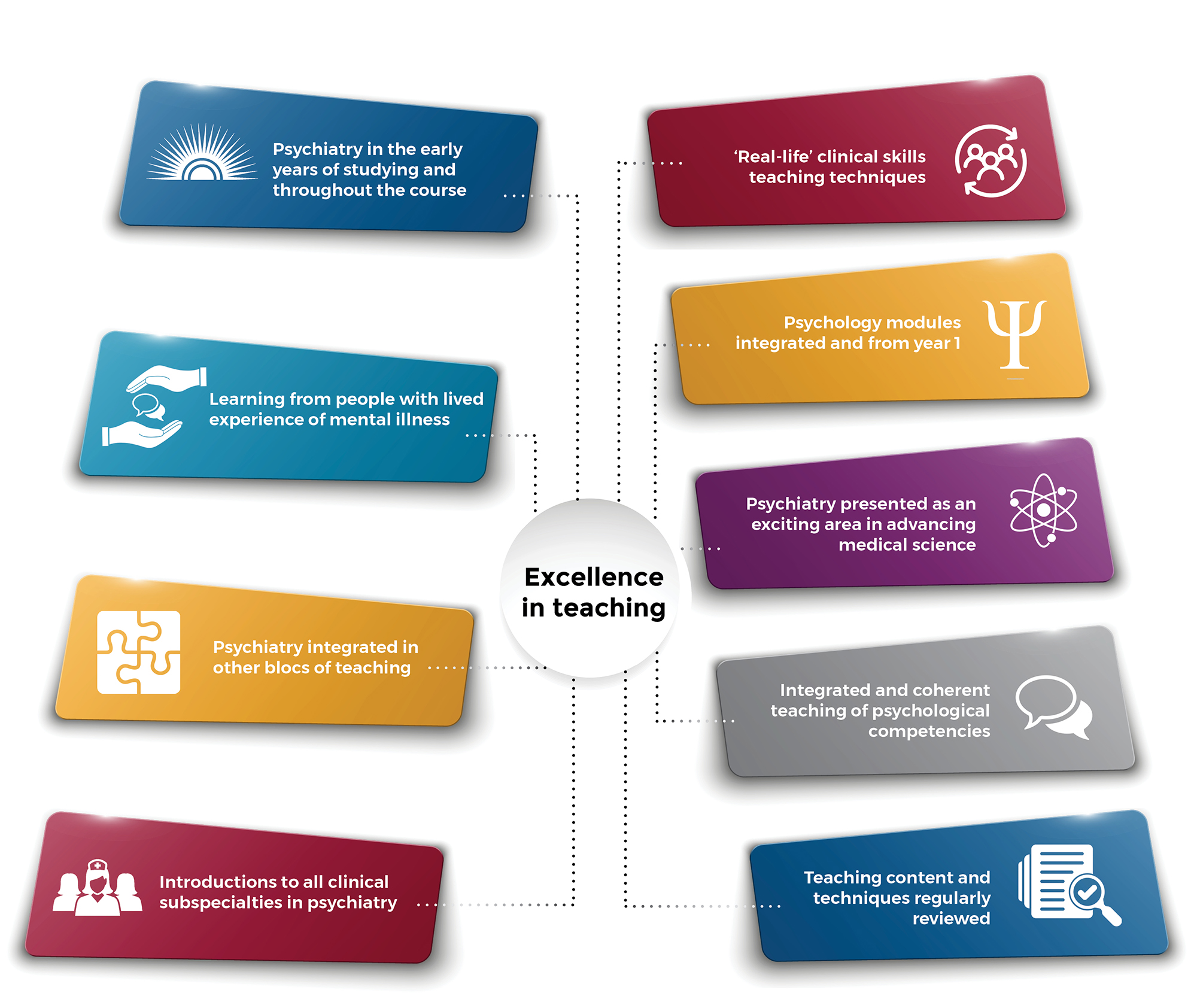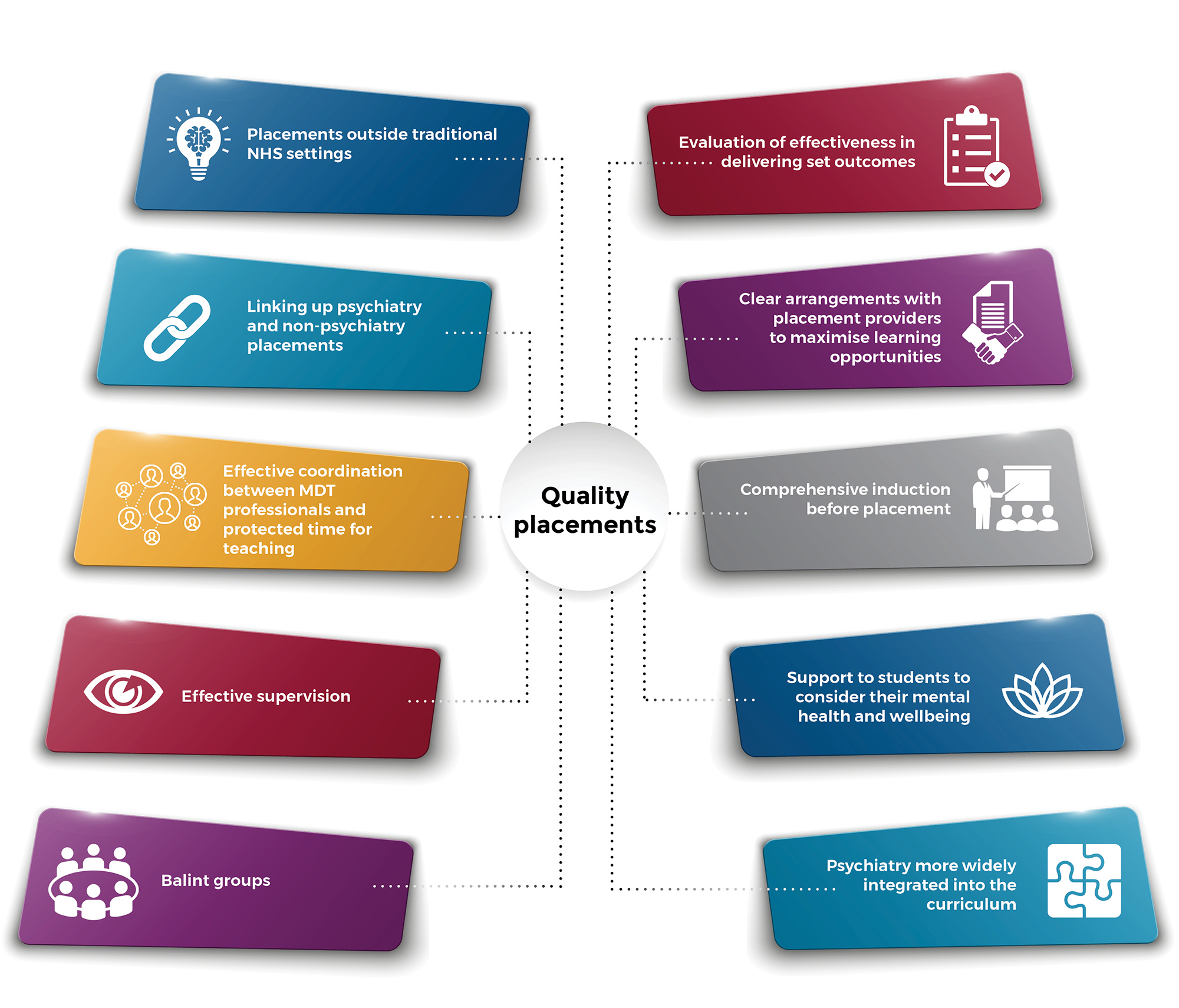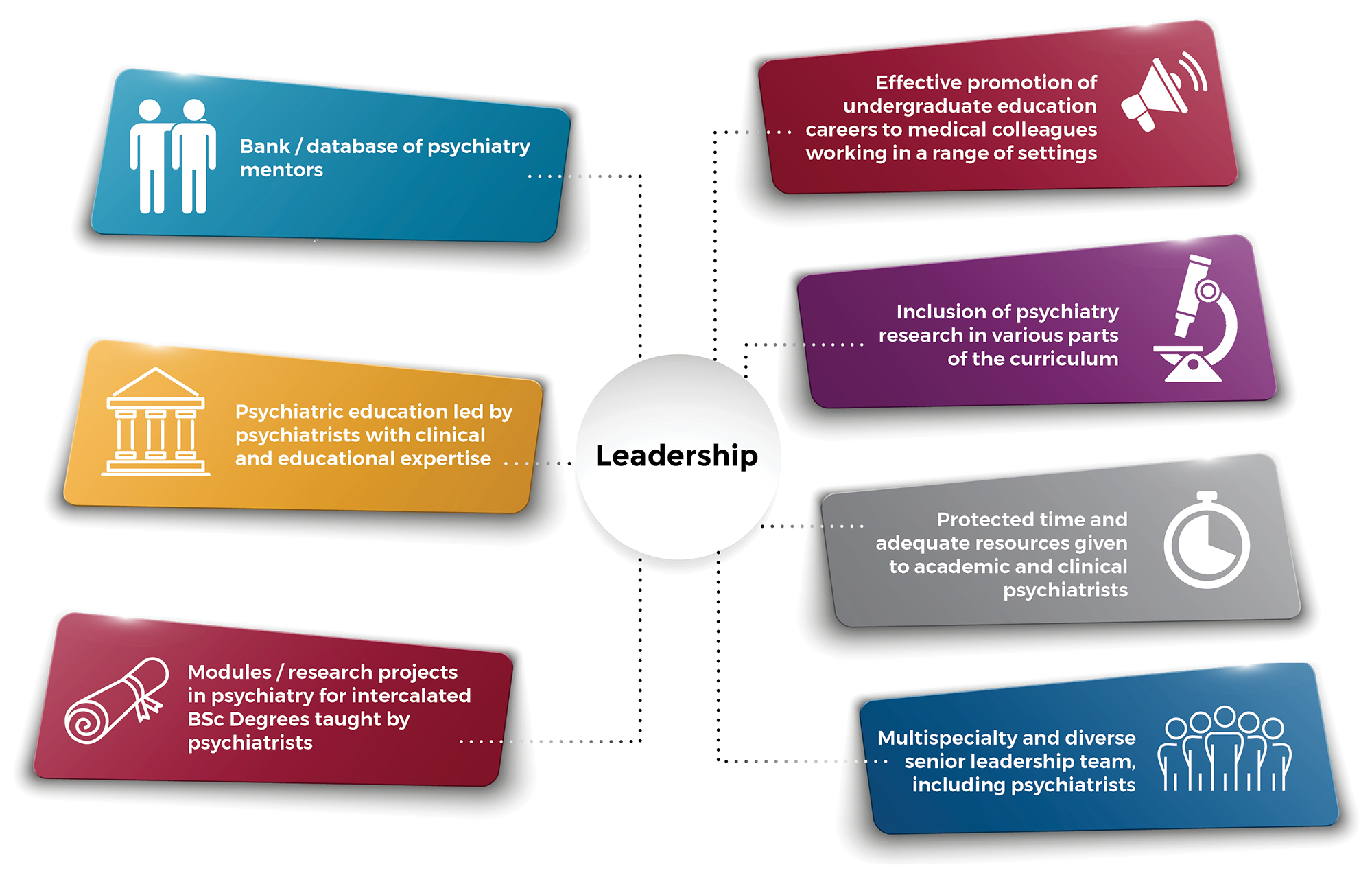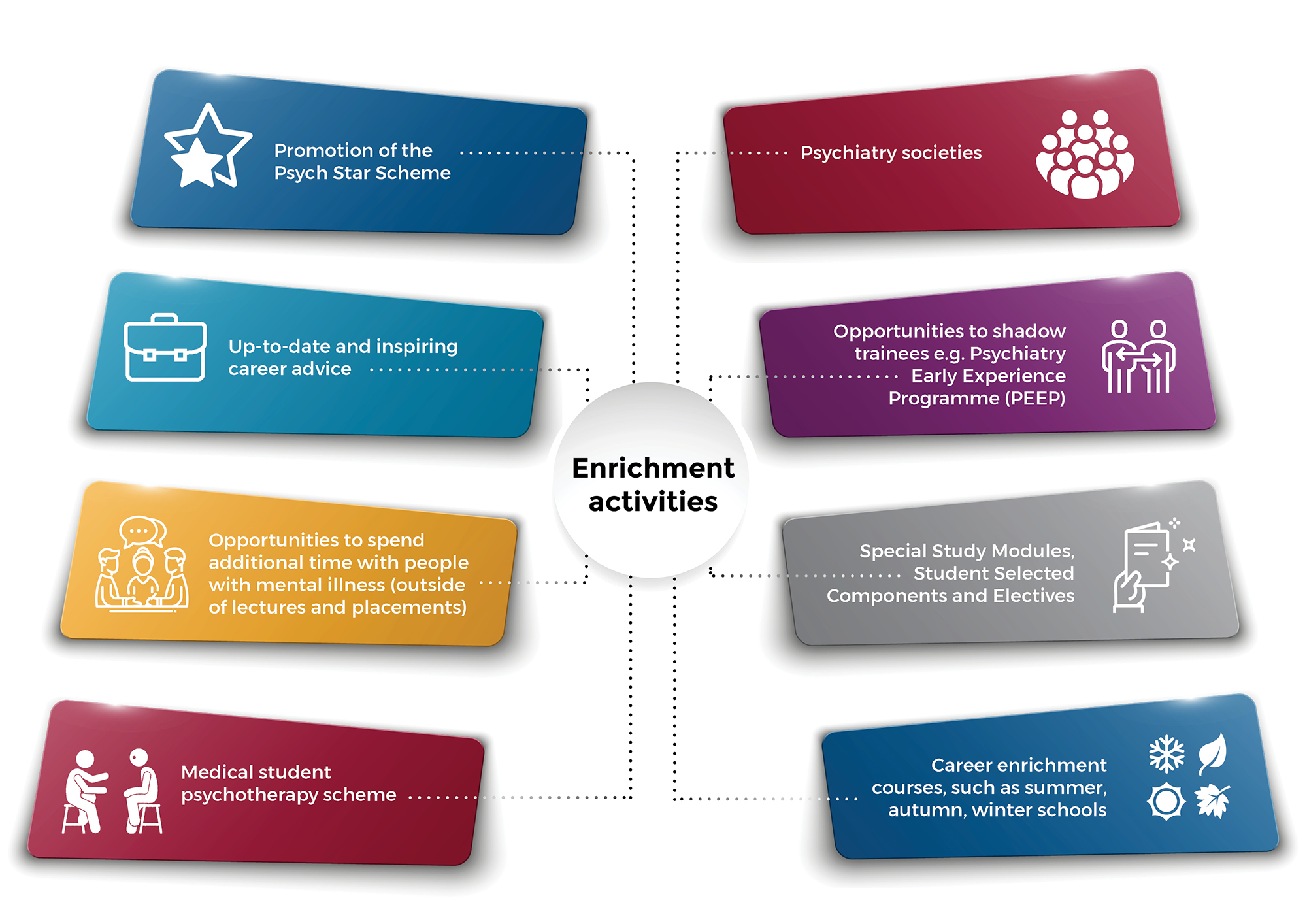Choose Psychiatry: Guidance for medical schools
This guidance was developed to provide medical schools with advice on how to enhance medical students’ experience of psychiatry.
Over the past few years, there has been an unprecedented focus on mental health across the UK. Policy decisions and changes mean that there has never been a more crucial time to work in mental health.
Yet a lack of suitably trained staff is widely recognised as one of the biggest risks to achieving parity of esteem between physical and mental health.
The Government’s ambitious plans for mental health, as well as the prevalence of mental illness, means that all future health professionals – including doctors in all specialties – will need to be equipped to provide appropriate support to people with mental illness.
This has been recognised by the General Medical Council in its 'Outcomes for graduates 2018' (PDF).
In this context, the College conducted a project to better understand medical students’ experiences of psychiatry through in-depth focus groups and questionnaires.
We have also engaged extensively with medical schools and with other stakeholders to understand the structures that underpin students’ experiences at medical school.
We found that high-quality exposure to psychiatry in the early years and throughout the course of medical school was what really made the difference when it came to their likelihood to consider becoming a psychiatrist.
This includes excellent teaching, high-quality placements in psychiatry, exposure to and contact with psychiatry leaders in undergraduate education as well as a range of enrichment activities based on good practice across the UK.
Based on the findings of the research, we’ve developed four key recommendations for medical schools to improve students’ experience of psychiatry:
- Medical schools should consider revising the undergraduate curriculum in psychiatry to ensure it reflects what we can learn from medical students’ experiences; and integrate psychiatry courses into the curriculum as widely and as early as possible.
- Working with placement providers, medical schools should organise high-quality undergraduate placements in psychiatry based on what we learned from medical students’ experiences.
- Medical schools should develop and support a cohort of leaders within psychiatry taking a major role in undergraduate teaching and other educational initiatives.
- Medical schools should develop and implement a range of enrichment activities to enhance students’ exposure to and experience of psychiatry.




The College is keen to support medical schools and help them implement the four recommendations.
To support the development of enrichment activities, we are creating an online hub of good practice taking place at medical schools across the country.
There are a huge variety of activities going on, and we want to capture this information so that it can be shared with medical schools and students alike.
If you would be willing to contribute to this please contact Zoé Mulliez so that we can include the ongoing work at your medical school.
For any questions or further information, please contact Zoe Mulliez, Policy and Campaigns Manager, at zoe.mulliez@rcpsych.ac.uk.
Presenting at medical education events?
Going to a medical education conference or meeting with medical schools’ representatives? The College has prepared a presentation template so that you can have all the main findings to hand. If you have any questions, or if you would like more detailed data from your area, please email the Policy team.

